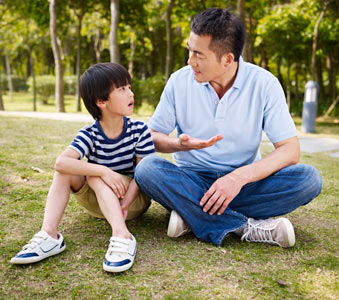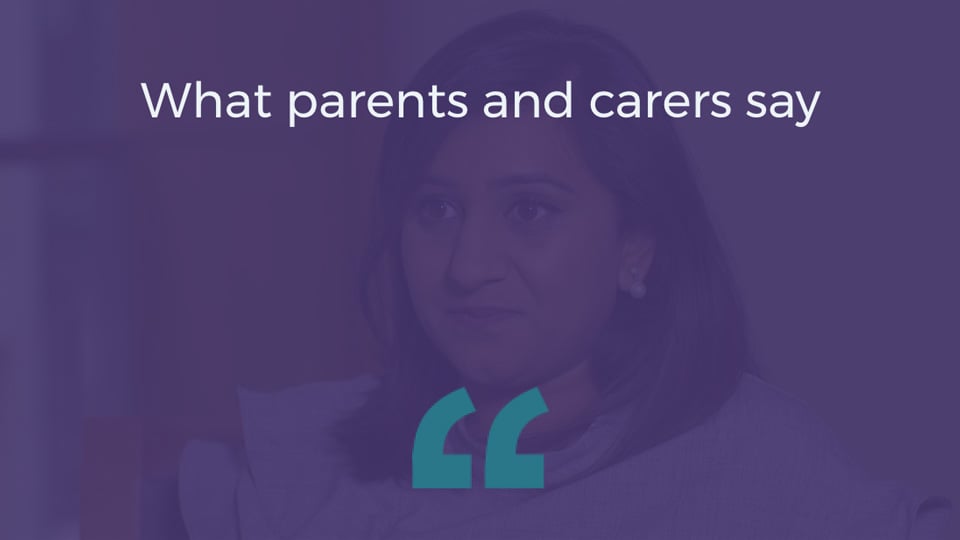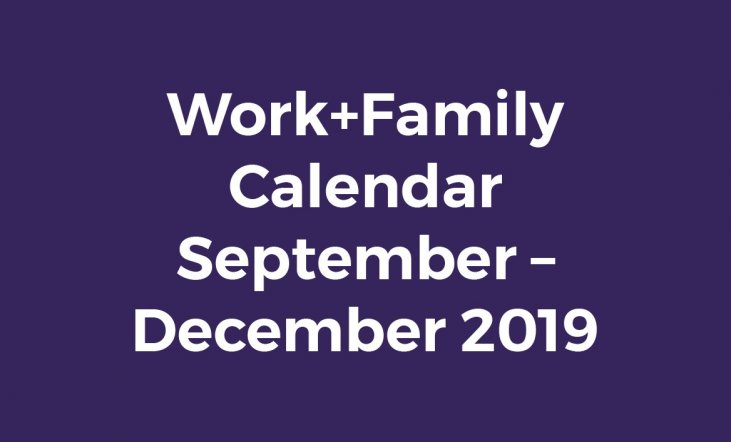Newsletter Sign Up
Regular work+family updates for
HR and diversity professionals.
My Family Care asks Ben: How do you discuss news and current affairs with your children? How important is it for children to have a grasp of the wider world? And how do you draw the line when it's too much?
"I don't like hearing about death"
The moment I was forced to think about how to talk to my kids about the news came as a bit of a surprise. I was driving along with my 10 year old son. The radio was on and as the music ended, the station began to announce the news. My son leant forward and tapped off the radio. I looked at him and his answer came before I could ask, "I don't like hearing about death".
News and current affairs can be more widely accessed by our children than before. Even the stalwart of children's news, CBBC's Newsround, gently delivers news stories of natural disasters or man-made atrocities, often offering appropriate contact details if a child has been upset or disturbed by what they've seen.
Broach the subject when it arises
If you're a parent who still needs to talk in terms of how many 'sleeps' away something is, you may find it more than a challenge for a child to conceptualise countries, cultures and circumstances that are the context behind many news items.
My preference is to respond to the subjects as they raise them rather than feel the need to talk through specific news or current affairs. I can then develop that further by asking them what they understand. It's quite useful to be led by their knowledge and interest in the subject, making corrections where appropriate, rather than to dive into a subject yourself.
Research and discovery
Naturally, everyone's threshold for what news they feel is enough, or age appropriate, will vary. I think it's honest to admit that, for many of us, we prefer that our children are withheld from seeing the variety of the world's brutality. But perhaps we can see this as an opportunity for children to research and discover what is going on.
I understand that this varies depending on the age and stage of the child. However, if there is something they hear about and it effects them - be it upsetting news or exciting news like the Olympics - why not take the time to research around the subject? A bit of assisted learning, along with researching, is a massively important tool for children.
Or it may just be a case of talking with them to better understand what is affecting them. Even if they've misunderstood something, acknowledging their feelings gives them the space they need to express themselves. In that way, it is a useful chance for them to know it's ok to be upset or show emotion in a healthy and supported way.
Understanding touchy subjects
On another occasion, I was reversing onto my driveway when the news came on. The lead story was of a woman who had received a prison sentence for killing her 4 year old daughter. Within seconds, my 7 year old piped up from the back of the car, "Daddy, why did that woman kill her daughter?" My head bowed to the steering wheel and under my breath let out a few expletives a-la Hugh Grant in Four Weddings. I felt I needed to offer him an explanation, but how could I when I didn't understand it myself?
Before I could respond, he'd bounded out of the car and was off playing. However, at bedtime that evening, he mentioned it again. I sat with him and looked to help him process what he'd heard. Whilst not knowing the details of the crime, I kept the explanation broad and helped him to understand that the mummy would have been very unwell and drew upon Pixar's Inside Out - a really useful film to use to help talk about emotions - as some sort of framework to explain what may have happened.
I may have done a poor job of relating the details, but it seemed to satisfy his concern, and that was more my intention; the first step in helping him to begin to comprehend the wider, deeper, and at times, darker world.
Ben Jackson, Leadership and Parental Transition Coach












